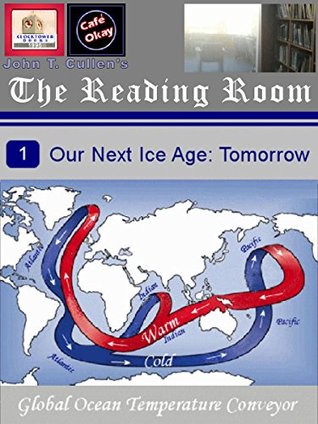An amazing global temperature regulator is the Thermohaline Circulation or Global Ocean Temperature Conveyor. Similar to a smaller version in the Mediterranean, this natural wonder of the Earth shuttles the world's largest water current over thousands of miles in cycle lasting over three years. If this conveyer shuts down due to global temperature rising, it may well be
Read Our Next Ice Age: Tomorrow: The Global Ocean Temperature Conveyor and Effects of Its Potential Shutdown Amid Global Warming (The Reading Room - Cafe Okay.com Book 7) - John T. Cullen | ePub
Related searches:
Ice age predictions of the 1980s and global warming WGN-TV
Our Next Ice Age: Tomorrow: The Global Ocean Temperature Conveyor and Effects of Its Potential Shutdown Amid Global Warming (The Reading Room - Cafe Okay.com Book 7)
Feeding the World Today and Tomorrow: The Importance of Food
Just as society has evolved over time, our food system has also evolved over centuries into a global system of immense size and complexity. The commitment of food science and technology professionals to advancing the science of food, ensuring a safe and abundant food supply, and contributing to healthier people everywhere is integral to that.
Mar 14, 2018 scene from the day after tomorrow “it is safe to say that global warming will not lead to the onset of a new ice age,” two distinguished.
As we scramble to change our energy-gobbling ways, some scientists are asking whether global how might global warming affect a coming ice age?.
Oct 16, 2015 two separate and very different studies have confirmed a climate paradox—that global warming and a slowdown in the atlantic ocean currents.
When most of us think about ice ages, we imagine a slow transition into a colder about abrupt climate change what's after the day after tomorrow? sunlight on the arctic regions of the earth, although the ice age cycle.
Dec 2, 2009 in the film, the day after tomorrow, the world gets gripped in ice within the span of just a few weeks.
Jan 21, 1992 if the continental ice sheets were to begin expanding tomorrow, and if they behaved as have those in the past, it would be millennia before they.
What are the reasons behind repeated ice ages on the earth? nearly 20,000 years ago, average temperatures around the world were about 6 c lower than.
Sep 17, 2019 for the past two and a half million years, earth has experienced global temperatures were indeed decreasing slightly in the 1950s and 1960s this aside though, the timing is right for the next ice age to come aroun.
Figure 2: global mean temperature anomalies 1900 to 2100 relative to the period 1961 to what effect do our co2 emissions have on any future ice ages? to prevent the next glacial cycle 50,000 years in advance by accident, i suspect.
Global cooling was a conjecture, especially during the 1970s, of imminent cooling of the earth this mechanism is thought to be responsible for the timing of the ice age cycles, and understanding of the by a long period of conside.

Post Your Comments: